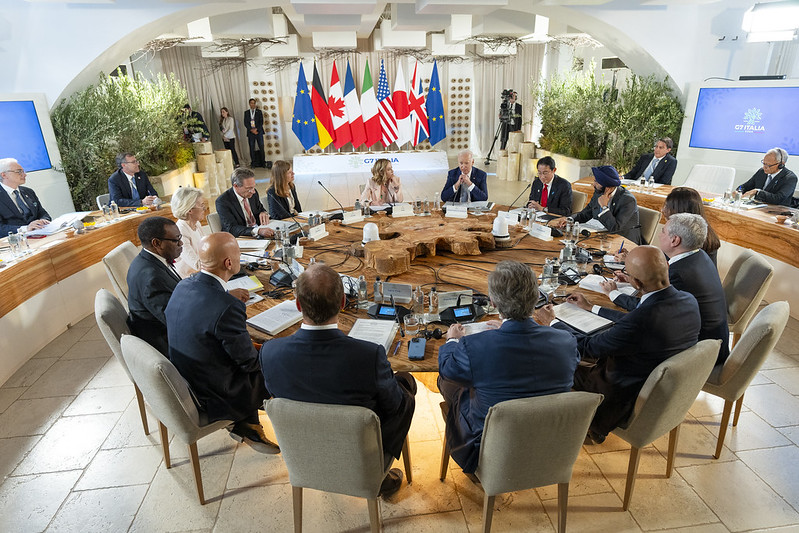
An official statement from the Group of Seven included several language aimed at Beijing, while a senior Biden administration official told reporters that “over time it has become clear that President Xi Jinping’s objective is China primacy.”
G7 countries In a public statement, he criticized China’s unfair trade practices. The announcement was made at the end of a summit in Italy on Friday.
The G7 leaders specifically noted in their statement that China’s “relentless industry targeting and comprehensive non-market policies and practices in a growing number of sectors have led to global spillover effects, market distortions and harmful overcapacity, undermining the resilience and security of workers, industries and economies.” They also called on China to “refrain from adopting export control measures that could lead to significant disruptions to global supply chains, particularly with regard to critical minerals.”
With that in mind, the G7 pledged to “invest in building our and their respective industrial capacity, promote diversified and resilient supply chains, and reduce critical dependencies and vulnerabilities.”
The tough words against Beijing and pledges to build and strengthen supply chains independent of China are another strong signal that the United States and its allies are shifting gears away from the more conciliatory relationship with China that prevailed in the early 21st century and preparing for long-term competition on a global scale.
Part of the reason for this shift, particularly for many European countries, is China’s relationship with Russia and China’s support for Russia’s unjustified aggression in Ukraine. The G7 pledged to “continue to take action, in accordance with our legal framework, against Chinese and third-country actors, including financial institutions, that provide material support to Russia’s military, and against other Chinese entities that facilitate the acquisition of goods for Russia’s defense industrial base.”
But another reason for the shift is China’s increasingly aggressive export strategy, aimed at dominating global industry. Gone are the days when many in the West believed that opening up trade with China would help it become more democratic; they finally seem to understand that Beijing is trying to dominate global markets. According to The New York Times, report:
A senior Biden administration official who was present at the summit and briefed reporters afterward described discussions about China’s role in an increasingly confrontational relationship between the two countries.
“As time goes on, it is becoming clear that President Xi Jinping’s objective is China’s advantage, from trade to influence on global security issues,” the official told reporters, speaking on condition of anonymity to discuss private discussions.
Although competing with China will be difficult, it is somewhat refreshing to see that leaders of the world’s most powerful democracies are finally coming to a common understanding that more needs to be done to counter China’s unfair trade practices.
For decades, one of the biggest problems has been China’s persistent over-industrialization, which has led to the decline of several industries in the U.S., including paper, tires and glass. Now, as we outline in a new report, sectors like steel, solar power and automotive are at risk because of Chinese misconduct.
Scott Paul, president of the Federation of American Manufacturing, appeared on CNBC’s Squawk Box on Monday morning to discuss China’s excess capacity, saying that while the problem is difficult, it finally seems like things are changing.
“Right now China has a huge amount of excess capacity in automotive, especially EVs, and internal combustion engines. We’re seeing excess capacity in solar, we’re seeing excess capacity in steel. We kind of know how this is going to play out. I don’t think the sequel will be any better, but I think being proactive can help minimize the damage,” Paul said. “On EVs, the Biden administration seems to agree, and the EU seems to be coming around to that view, but there’s still a lot of work to be done.”
In our report Shock Waves: The ripple effects of China’s over-industrialization on American manufacturing and factory workersWe outline 10 policy recommendations aimed at mitigating the impact of Chinese excess capacity, including imposing exclusionary tariffs on key sectors like automobiles, enacting new legislation like the Level the Playing Field Act 2.0 to create modernized tools to better enforce our trade laws, and reinstating Section 421, which allowed the U.S. to take action to address market disruptions but expired in 2013. Additionally, we recommend strong measures to ensure that incentives like the Clean Vehicle Tax Credit in the Control of Inflation Act benefit domestic manufacturers.








